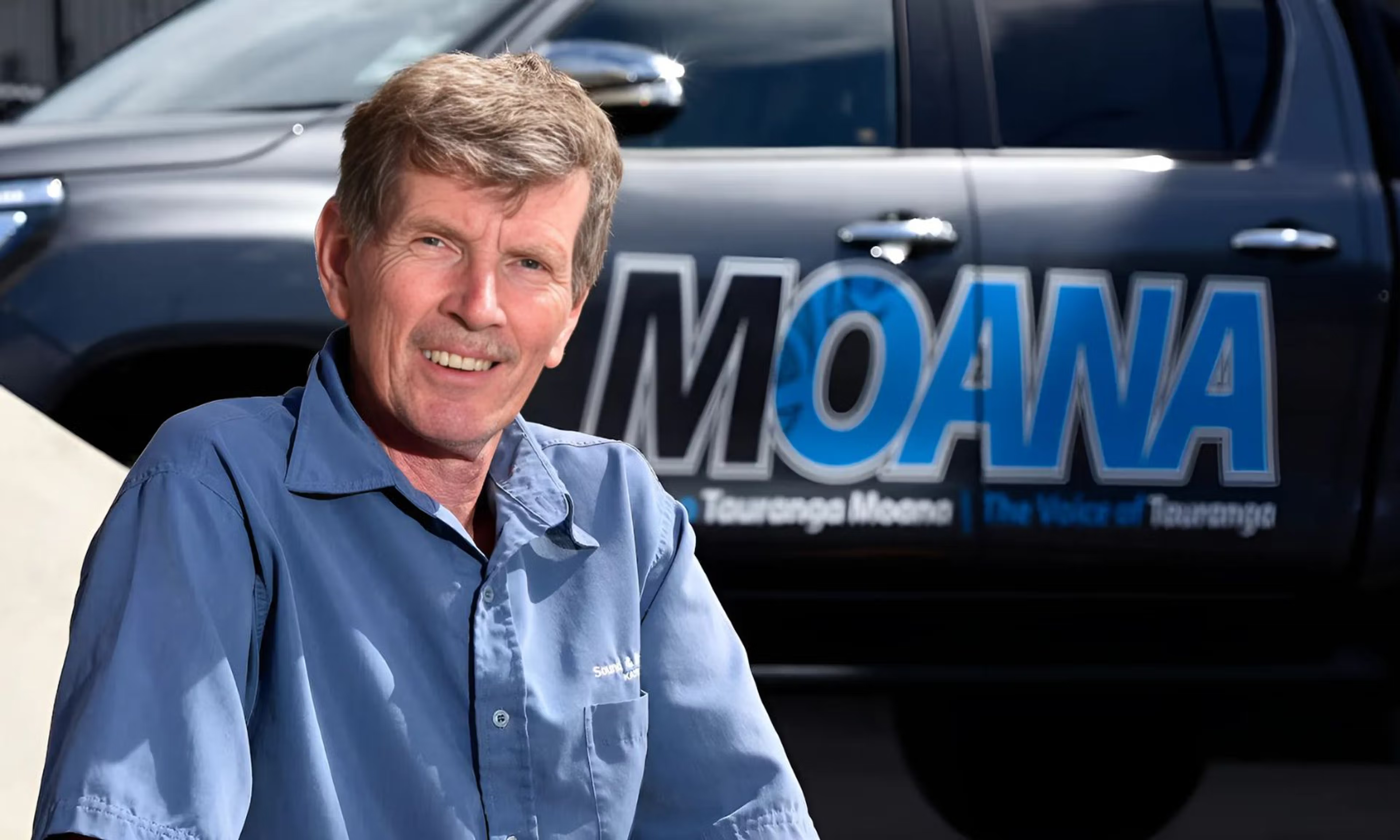

Papa George Burt.
Photo/Supplied
Meet the man behind Te Matatini going multilingual
Papa George Burt has been pioneering translation services to enrich the cultural impact of the Māori performing arts festival.
The journey of translation services has played a vital role in making Te Matatini, a Māori performing arts festival, accessible to audiences across the Pacific.
A key figure in this effort is Papa George Burt, who has been instrumental in setting up iwi radio stations, including Moana Radio, which he helped launch in 1992.
The most recent kapa haka competition was held in New Plymouth at the Bowl of Brooklands from 25 February to 1 March, hosted by Te Kāhui Maunga, the Taranaki/Whanganui regional authority.
Papa George has significantly contributed to developing a network of iwi radio stations throughout Aotearoa New Zealand, enabling livestream broadcasting of important events such as tangihanga, funerals, and Te Matatini championships.
Over the years, he has managed translation services for government discussions and Treaty of Waitangi hearings.
Papa George describes the early days of broadcasting. "When we started, we would have an FM transmitter and a radio studio and broadcast on a frequency.
"People would buy a little radio at the gate, radio and headphones, I think something like five dollars. And it wasn't publicised much,” he says.
“So it might have only been a few hundred people using that opportunity, but that was what we did 18 years ago.
"What's different now is that everybody has a smartphone in their pocket, and the smartphone can capture the moments of our lives.’’

George Burt with Governor-General Patsy Reddy, who presented him the New Zealand Order of Merit in Wellington 2020. Photo/Governor-General of New Zealand Facebook Page
Known widely and affectionately as Papa George to the Cook Islands community, he, his wife, Aunty Mabel, and their children lived in Rarotonga for 10 years.
They returned to Katikati so Aunty Mabel could honour her responsibilities to her community.
Papa George’s journey with Māori culture began in 1975 when he first visited Otakou Marae near Dunedin.
This visit deeply influenced him and inspired his desire to learn the Māori language.

George Burt pictured with wife Mabel Wharekawa-Burt. Photo/George Burt Facebook Page
“Ko ai teia? Ko Papa George. We were in Rarotonga for a long time. We lived there for ten years. We came back to Katikati to take care of the elders in Katikati.’’
During an interview with Susnation Seta from PMN Cook Islands, Papa George reflects on his 18 years in radio and the crucial translation services he has helped provide across the Pacific.
He highlights Te Matatini's uniqueness and the need for translations to capture the performances' true essence.

Haka Translation Team From left to right; Maria Huata, Amber Smith, Dr Te Rita Papesch, David Jones, Erana Fenton, Tracey Patrick, George Burt and Zay'yen Benson-Brown. Photo/Ngati Hine FM - Facebook Page.
“So that people can understand the stories that have been presented. It embellishes the expression, gives the depth of expression.’’
Over his 18 years of service, he says he has witnessed incredible technological advancements, which have made it easier to share content.
But these improvements come with challenges, such as potential technical issues. To address this, he stresses the importance of backup plans before events.

Rova App. Photo/Rova App
“There are so many things that we can do now with our technology, and it's in everybody's hands. All the opportunities are there,” Papa George says.
“If you use your own phone and your imagination, then we can do these things. It's not like before. So that's my thing. Yeah, chase after the dream, use technology, and learn technology so you can carry us forward.”
This year, the Haka Translate tool has been updated to provide commentary in multiple languages, including English, Lea Faka-Tonga, Te Reo Māori Kūki ‘Āirani, Gagana Sāmoa, Vosa Vaka-Viti, and Mandarin, for the final day of Te Matatini.
Watch Papa George Burt’s full interview on PMN Cooks below.



